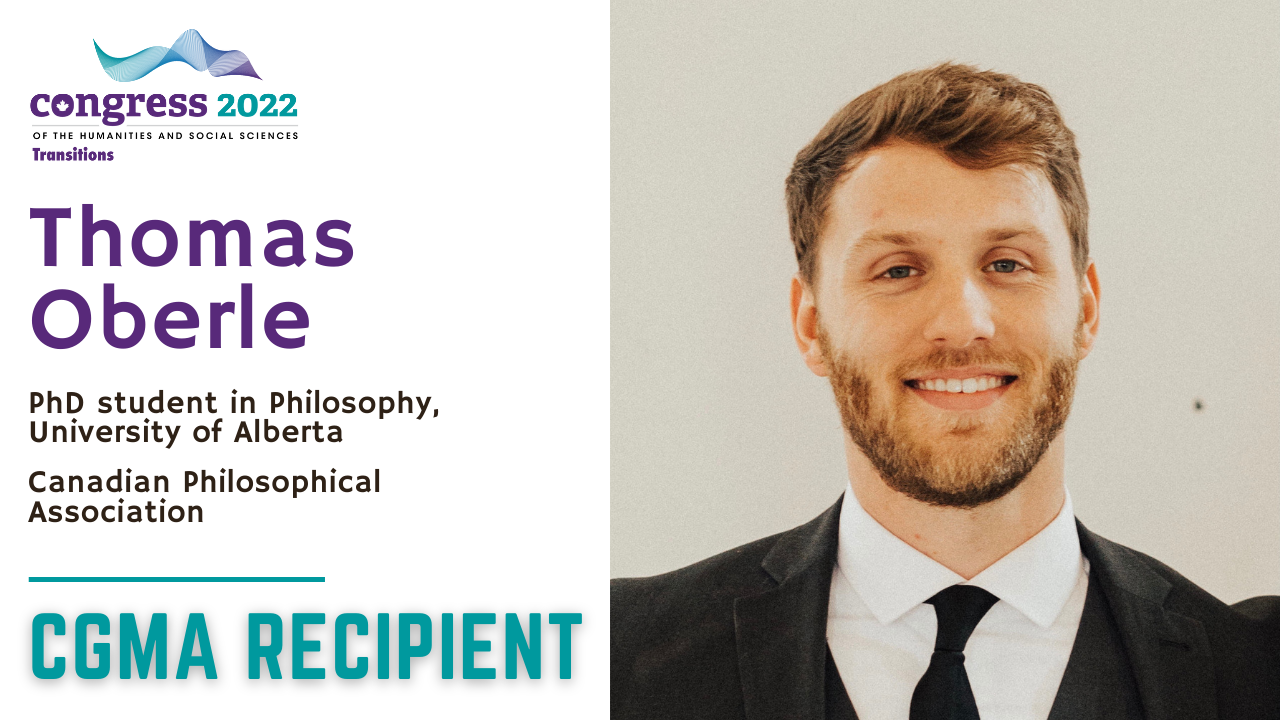Nominated by member scholarly associations of the Federation for the Humanities and Social Sciences, the 2022 Congress Graduate Merit Awards recognize exceptional graduate students who will be presenting their work at the Congress of the Humanities and Social Sciences.

Tell us about yourself.
I am a PhD student at the University of Alberta studying philosophy. My primary research area is analytic metaphysics.
Which scholarly association(s) are you currently a member of?
- Canadian Philosophical Association (CPA)
- American Philosophical Association (APA)
At which conference(s) will you be presenting and/or attending?
Canadian Philosophical Association (CPA)
What is the title of your Congress 2022 presentation?
Metaphysical Foundationalism and the Principle of Sufficient Reason (PSR)
How would you describe the research you will be presenting at Congress 2022?
Consider a material object, like your body. Your body has parts – arms, legs, etc. Those parts depend for their existence upon further parts at the molecular level say. And those parts depend upon further parts at the sub-atomic level. The metaphysical foundationalist says there must be a fundamental level that terminates the chain of dependence. But this view is incompatible with the principle of sufficient reason (PSR) that says everything has an explanation because the fundamental level is not dependent on anything and so is unexplained. I argue that foundationalism can be compatible with the PSR if we amend certain assumptions regarding the nature of fundamentality and the dependence relation in question.
How does the research you will be presenting connect with the Congress 2022 theme, Transitions?
Though my research focuses on how foundationalism can be made compatible with the PSR, I think the PSR ultimately favours a non-foundationalist view of the world, one in which chains of dependence can descend indefinitely such that there is no fundamental level of reality. This view, sometimes known as metaphysical infinitism, has not always been very popular in the Western philosophical tradition. But it has been prominent in some non-Western traditions, such as certain Buddhist philosophical traditions. As such, I think there is a great deal of non-Western philosophy that can inform current metaphysical debates on fundamentality and the PSR.
Share your hopes for Congress 2022.
I’m grateful for the opportunity to share my ideas and I’m looking forward to receiving feedback and exploring the research of others.
